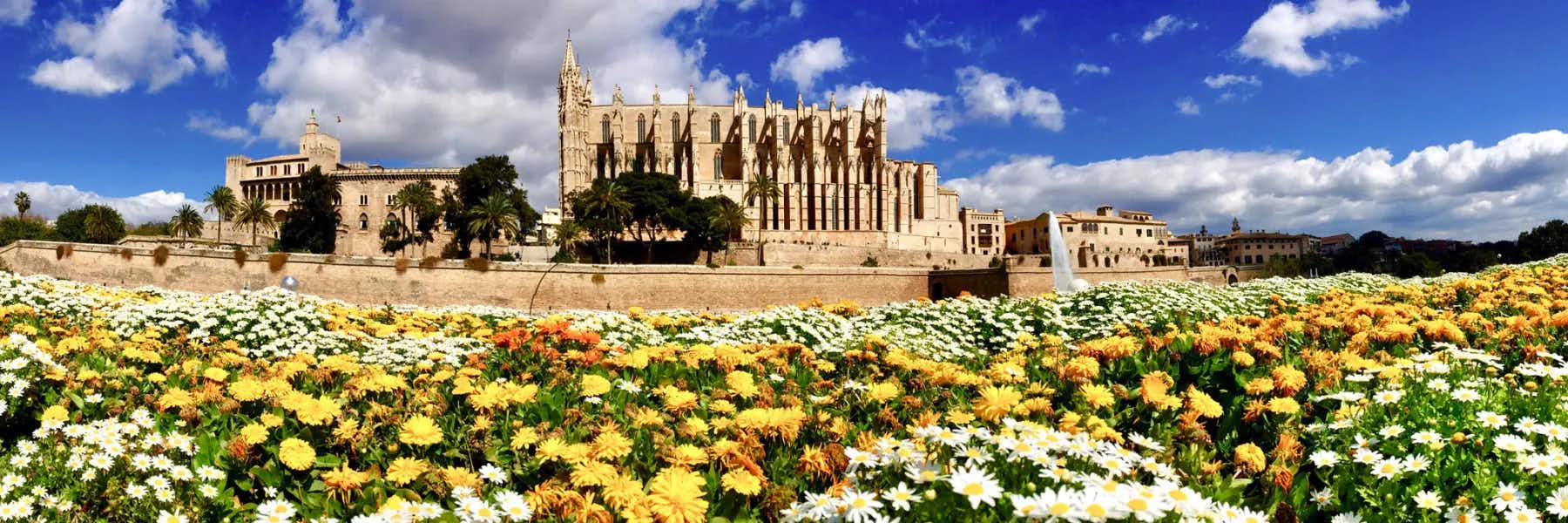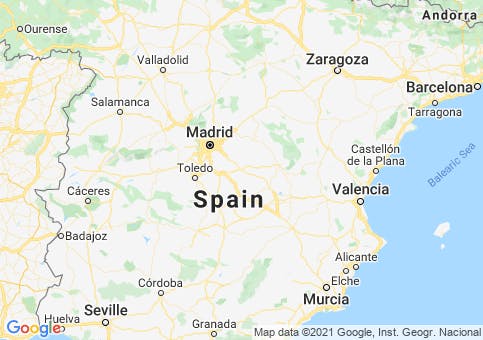Spain's rich culture, stunning natural beauty, and welcoming people make it one of Europe’s most attractive destinations for those seeking a new adventure. With over 300 days of sunshine per year, the country offers a climate that is hard to beat. The Mediterranean coastline provides some of the most beautiful beaches in the world, making it an ideal place for those who love sun, sand, and sea. Northern Spain is home to the Pyrenees Mountains, perfect for those who enjoy skiing in the winter months.
Another benefit of living in Spain is the affordable cost of living. Compared to other European countries, Spain offers a lower cost of living, allowing expats to enjoy a comfortable lifestyle without breaking the bank. This is especially true in smaller towns and rural areas where housing, food, and entertainment costs are significantly lower.
In addition, Spain is renowned for its delicious cuisine, rich history, and vibrant arts and culture scene. Whether exploring the cobbled streets of a charming village, or soaking up the atmosphere at a lively street festival, there is always something exciting to discover in Spain.
Overall, expat living in Spain offers a unique blend of warm weather, affordable cost of living, and rich culture, making it an attractive destination for North Americans looking for a new place to call home.
Get Your Free Spain Report Today!
Get Your Free Spain Report Today!
Learn more about the lower cost of living in Spain and other countries in our free daily postcard e-letter. Simply enter your email address below and we'll also send you a FREE REPORT — Live the Good Life in Sunny, Affordable Spain.

By submitting your email address, you will receive a free subscription to IL Postcards, Overseas Dream Home, The Untourist Daily and special offers from International Living and our affiliates. You can unsubscribe at any time, and we encourage you to read more about our Privacy Policy.
Culture
Spain has unique cultures and customs that can take some time to adapt to. One important aspect of adapting to Spanish culture is learning the language. Spanish is the official language of Spain, and while many locals speak English in major cities, learning the language will make it easier to communicate and build relationships with the locals.
Another cultural tradition in Spain is the siesta, where businesses and shops close for a few hours in the afternoon. This is a great time to rest or take a leisurely walk around the city. Spanish cuisine, including paella, tapas, and fresh seafood, is famous worldwide. Trying the local cuisine is a great way to immerse yourself in the culture and make new friends.
Spain has a rich tradition of festivals and cultural events, such as La Tomatina, the Running of the Bulls, and Flamenco dancing. Participating in these events is a great way to meet locals and experience the culture firsthand. Additionally, it’s important to respect local customs, such as addressing people by their formal titles, such as "Señor" or "Señora," and avoiding discussing sensitive topics such as politics or religion. Spanish culture places a strong emphasis on respect and politeness.
Building relationships with locals takes time, but there’s many ways to get started. Joining a local club or organization is a great way to meet people with similar interests and build friendships. Attending language exchanges allows you to simultaneously practice your Spanish and meet other locals interested in learning English. Volunteering lets you give back to the community, while also meeting locals who share your passion for helping others. Group activities such as hiking, cycling, or cooking classes are another way to meet new people while having fun. Being open-minded and showing respect for Spanish traditions and customs will help you integrate into the community and make lasting friendships.
The Spanish Language
Learning Spanish is essential for anyone who plans to live or work in Spain. While many Spaniards speak English, particularly in tourist areas, Spanish is the country’s official language. It’s widely used in all aspects of daily life, including business and social interactions. Learning Spanish allows you to communicate more effectively with locals, make new friends, and better understand the culture.
Fortunately, there are many options for learning Spanish in Spain. Language schools and private tutors are available in most cities, and many universities offer language courses for international students. Some schools even offer immersion programs, where students live with a host family and speak Spanish exclusively during their stay.
In addition to formal language classes, there are many informal ways to practice Spanish in Spain. Simply conversing with a local, reading Spanish newspapers or books, or watching Spanish TV shows and movies can help improve your language skills. Spanish people are generally friendly and welcoming; many will gladly help you practice your Spanish.
You don’t need to wait to go to Spain to get started. You can start learning now in your home country, making your arrival easier.
Healthcare
Spain's healthcare system is generally regarded as one of the best in the world, with excellent medical facilities and highly trained healthcare professionals. The renowned healthcare system provides both public and private healthcare options. Taxes fund the public system and provide universal coverage to all citizens and legal residents. The public system includes primary care centers, hospitals, and specialty clinics. The private system operates alongside the public system and offers more personalized care and shorter wait times at a higher cost.
For expats, it’s important to understand how to access healthcare in Spain. As a legal resident, you’re entitled to the same healthcare benefits as Spanish citizens, including access to public healthcare. To access public healthcare, you will need to obtain a Spanish Social Security card and register with a local health center. Many expats also opt to purchase private health insurance, which can provide additional benefits and more extensive coverage.
In popular expat destinations such as Barcelona, Madrid, and the Costa del Sol, healthcare facilities are widely available and generally of high quality. Private clinics and hospitals are especially prevalent in these areas and offer a range of services, including specialized care in fields such as oncology, cardiology, and orthopedics. Public hospitals and clinics in these areas are also well-equipped and staffed with highly trained healthcare professionals.
For expats, it’s important to research the healthcare options in your chosen destination and determine the best course of action for your individual needs. Proper planning and understanding of the healthcare system allow you to enjoy high-quality medical care and peace of mind while living in Spain.
The Expat Community in Spain
Spain has a vibrant expat community, particularly in popular destinations such as Barcelona, Madrid, Valencia, and the Costa del Sol. Expats in Spain come from diverse backgrounds and nationalities, making it easy to find like-minded individuals and form new friendships.
There are many ways to get involved in the expat community in Spain. Joining social clubs and organizations is a great way to meet new people and participate in shared interests. Many cities have expat-specific organizations, such as language exchange groups, sports clubs, and cultural societies. These groups often host events and activities such as cooking classes, wine tastings, and excursions to local attractions.
Online forums and social media platforms can also be valuable resources for connecting with other expats in Spain. Websites such as InterNations and Expatica have active communities in Spain and offer information and resources for living in the country. Facebook groups are also popular for connecting with others and staying up to date on local events and activities.
Spain has many social and cultural events, particularly in popular destinations. Festivals and cultural events, such as La Tomatina in Valencia, the Running of the Bulls in Pamplona, and the Feria de Abril in Seville, are admired among expats and locals alike. Many cities also host international film festivals, music festivals, and food and wine events that attract visitors and locals.
The expat community in Spain is welcoming and diverse, offering many opportunities for socializing and participating in shared interests. By getting involved in local organizations and events, you can build new friendships, experience Spanish culture, and make the most of your time living in this beautiful country.
Work and Business in Spain
Finding work as an expat in Spain can be challenging, particularly for those who don’t speak fluent Spanish. However, some industries and job sectors are more welcoming to non-Spanish speakers, including tourism, teaching English, and the tech industry. Expats with specialized skills or experience may also be able to find work in other sectors, such as finance or healthcare.
The process can be complex and time-consuming for those interested in starting their own business in Spain. The first step is obtaining a visa and legal residency in Spain, as non-residents are not permitted to start a business there. Once you have legal residency, you will need to register your business with the Spanish government, obtain a tax identification number, and fulfill any other legal requirements related to your industry or business type.
Despite the challenges of starting a business in Spain, the country is becoming an increasingly popular destination for digital nomads. Popular areas for digital nomads include Barcelona, Valencia, and the Canary Islands, which offer a high quality of life, affordable cost of living, and a thriving tech industry. These areas also have a vibrant community, many co-working spaces, and networking events designed for digital nomads.
Resources
Spain is a popular destination for expats, offering a warm climate, affordable cost of living, and a welcoming culture. However, there are some challenges that people may face, such as the language barrier and finding work. Researching and planning ahead are important to make the most of your experience in Spain.
If you're considering retiring in Spain, speaking with a retirement specialist who can provide guidance and support may be helpful. There are many resources available for people moving to Spain, such as expat organizations, online forums, and social media groups. These resources can be a valuable source of information and support for those looking to make the most of their time in Spain.
It is always important to do additional research and reach out to resources for support. By planning, and taking advantage of available resources, you can make your transition to retirement in Spain a smooth and enjoyable experience.
Some helpful resources for expats in Spain include:
Expatica Spain: A comprehensive resource for expats in Spain, offering information on visas, housing, healthcare, and more.
Metropolitan Magazine: up-to-date features and information in English; day-to-day living, visiting, and the essential guide to what's happening in Barcelona and Spain.
Internations: A social network for expats in Spain and around the world, offering events, forums, and resources.
Spain Expat: An online community and resource center for expats in Spain, offering forums, articles, and events.
Spain's Ministry of Foreign Affairs: Provides information on visas, residency requirements, and other legal matters for non-Spanish residents.
Embassy of the United States in Madrid: Provides information on consular services for U.S. citizens living in Spain.
Get Your Free Spain Report Today!
Get Your Free Spain Report Today!
Learn more about the lower cost of living in Spain and other countries in our free daily postcard e-letter. Simply enter your email address below and we'll also send you a FREE REPORT — Live the Good Life in Sunny, Affordable Spain.

By submitting your email address, you will receive a free subscription to IL Postcards, Overseas Dream Home, The Untourist Daily and special offers from International Living and our affiliates. You can unsubscribe at any time, and we encourage you to read more about our Privacy Policy.














